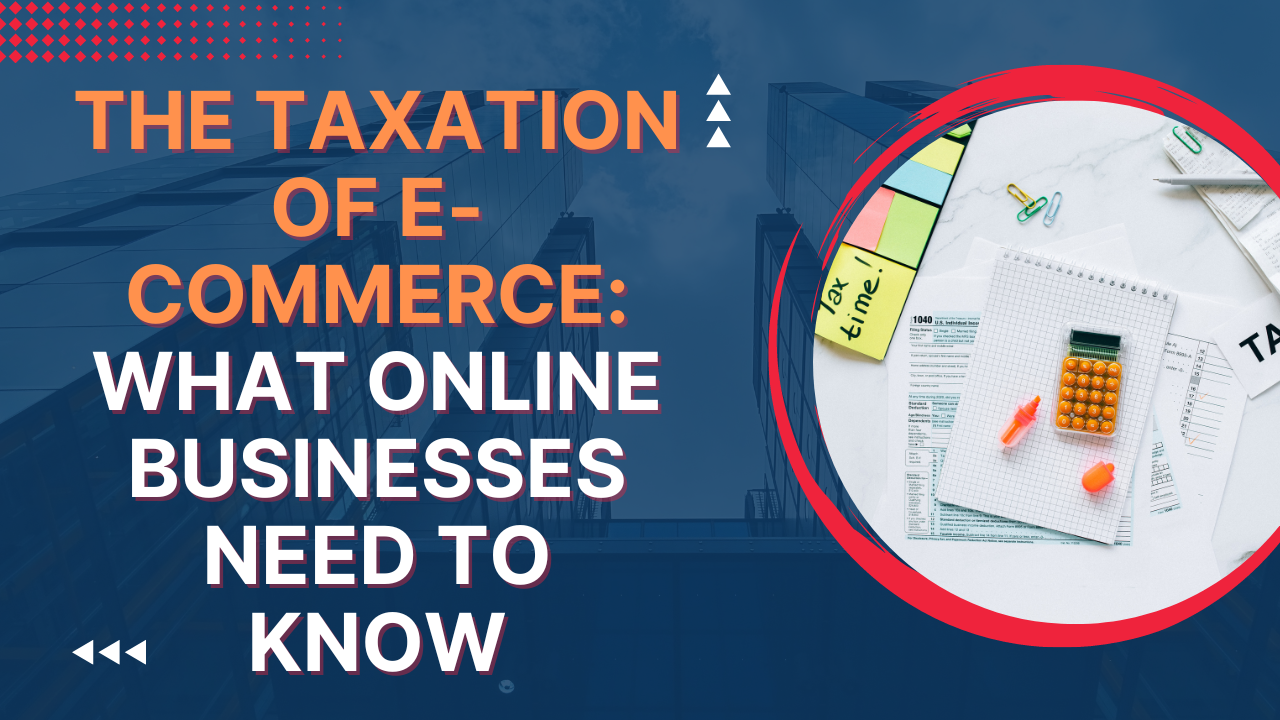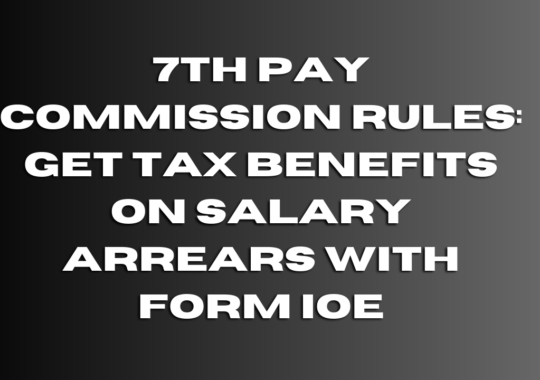If you own an online business or are thinking of starting one, you probably know that e-commerce is subject to taxation, just like any other business. However, navigating the world of e-commerce taxation can be confusing and challenging, especially for small business owners who may not have a background in tax law.
The rise in demand for online shopping has prompted businesses to adopt e-commerce, offering customers a convenient way to access diverse goods and services. However, this surge requires businesses to gain a more comprehensive comprehension of e-commerce taxation. This piece will offer an overview of e-commerce taxation, along with vital information to guarantee compliance with legal responsibilities.

After reading this article, you will be better equipped to comprehend e-commerce taxation and feel assured about your capacity to adhere to legal requirements. Whether you are an experienced e-commerce business owner or starting afresh, continue reading to discover what you must know regarding e-commerce taxation.
What is E-Commerce Taxation?
E-commerce taxation refers to the taxation applied to online sales and transactions. It’s essential to understand that e-commerce taxation is not a distinct category of tax; instead, it involves the application of prevailing taxes to online businesses. Such taxes can include sales tax, value-added tax, and income tax.
Sales Tax
- Sales tax is a tax imposed by state and local governments on the sale of goods and services. In the past, sales tax only applied to brick-and-mortar businesses with a physical presence in a state. However, recent changes in legislation mean that online businesses may now be required to collect and remit sales tax in certain states, even if they don’t have a physical presence there.
Value-Added Tax
- Value-added tax (VAT) is a type of consumption tax that is charged on the value added during the production and distribution processes. Unlike sales tax, VAT is usually collected by businesses and paid to the government. For example, in the European Union, businesses are required to collect VAT on their sales to customers in other EU countries.
Income Tax
- Income tax pertains to the tax imposed on the income received by a business. For online businesses, income tax is applicable to the profits obtained from online sales, which encompass the income earned from product sales and any revenue obtained from online advertising, affiliate marketing, or other online sources.
What Online Businesses Need to Know
As an online business owner, there are several things you need to know about e-commerce taxation:
Sales Tax
- If your business has a physical presence in a state, you may be required to collect and remit sales tax on online sales in that state. However, even if you don’t have a physical presence in a state, recent changes in legislation mean that you may still be required to collect and remit sales tax in certain states.
Value-Added Tax
- If your business sells goods or services to customers in other countries, you may be required to collect and remit VAT. This can be a complex area of taxation, as VAT rates vary from country to country.
Income Tax
- As an online business owner, you’ll need to pay income tax on the profits earned from your online sales. This includes income earned from selling products, as well as any income earned from advertising, affiliate marketing, or other online revenue streams.
Also read:
Investment Taxation: Understanding Capital Gains, Dividends, and More
The Future of Taxation: Trends, Challenges, and Opportunities Ahead
The Taxation of Cryptocurrency: What You Need to Know
Income Taxation 101: Understanding the Basics of How Taxes Work
FAQs
What is e-commerce taxation?
Online businesses are required to remit taxes to the government for their online sales of products or services, known as e-commerce taxation. It comprises sales tax, value-added tax (VAT), and other relevant taxes imposed in the jurisdiction where the business is situated.
Do I have to pay taxes on my e-commerce sales?
Yes, if you are an online business selling goods or services, you are required to pay taxes on your sales. The specific taxes and rates vary depending on the country, state, and local laws where your business is located and where your customers are located.
How do I determine the taxes I owe for my e-commerce sales?
If you’re wondering how to calculate the taxes you owe for your e-commerce sales, it primarily hinges on where your business is based and where your customers are located. To identify the applicable taxes and rates for your business, you must investigate the tax regulations in your state or country and seek advice from a tax expert.
Do I need to register for a sales tax permit to sell online?
Whether or not you need to register for a sales tax permit when selling online depends on the state where your business operates. Typically, if you’re selling goods online, you may have to obtain a sales tax permit in your state of business residence, which will enable you to collect and submit sales tax for your e-commerce transactions.
What is a value-added tax (VAT) and how does it relate to e-commerce?
A value-added tax is a tax imposed on the value added during each stage of producing and distributing goods or services, commonly utilized in several countries outside the United States. If you sell products or services in a VAT-levying country, you may need to obtain a VAT number and collect the tax on your sales.
Is it possible to evade taxes on e-commerce sales?
No, it’s not legal to do so. Failing to remit taxes can result in penalties and fines, and may even lead to the closure of your business. It’s crucial to adhere to all tax laws and regulations to avoid legal problems and ensure the financial stability of your enterprise.
What should I do if I am unsure about the taxes I owe for my e-commerce sales?
If you are uncertain about the taxes due for your e-commerce sales, seeking guidance from a tax professional or accountant is the recommended course of action. They can walk you through the tax laws relevant to your business and aid you in identifying and paying the appropriate taxes.
Conclusion
To sum up, the taxation of e-commerce is a complicated and demanding issue for online businesses. It is vital to remain abreast of the constantly evolving tax laws and regulations, particularly in a fast-growing sector like e-commerce. Although it may appear daunting, comprehending your tax responsibilities as an online business can ultimately prevent penalties and legal complications.
It is crucial to maintain accurate records of your sales, taxes collected, and expenses to ensure that you file correct tax returns and pay the appropriate amount of taxes. You might want to think about teaming up with a tax professional or utilizing tax software to aid you in navigating the complexities of e-commerce taxation.
Finally, as an online business, it’s important to be aware of the potential tax implications when expanding your business to new states or countries. Doing your research and seeking professional advice can help you avoid costly mistakes and ensure compliance with local tax laws.
By taking a proactive approach to e-commerce taxation and staying informed, you can position your online business for long-term success while also fulfilling your tax obligations.



